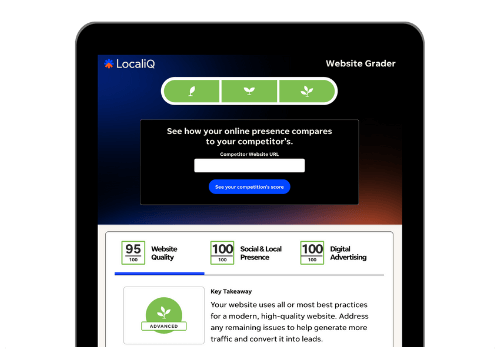So many of us have likely worked in a culture with fear-based leadership – where the majority of leaders are operating out of a place of fear: Fear of losing their job, not doing well, or not being perceived as effective. And when your leaders are operating from that place, it’s usually passed down to you — so you mirror those fears. And that can make for a less-than-pleasant work experience.

As a business leader, you likely don’t want to manage your team in that way. So, how can you break the cycle of fear-based leadership and instead offer your employees compassionate management?
Rena DeLevie, Chief Compassion Officer, created the term compassionate management when she discovered she was being a bully of a boss (her words, not ours!) and wanted to make work a pleasant place not only for her employees but also for herself.
After operating from a place of fear for so long, she realized she wasn’t happy with the way she was acting at work and treating her employees, so she completely changed her mindset and now works to help professionals find themselves in the workplace.
Here are some of her best tips for ditching fear-based leadership and creating a culture that inspires — and retains — employees.
3 Reasons to Ditch Fear-Based Management
Why should we encourage our organizations — and ourselves — to leave behind fear-based leadership and operate from a place of compassion instead?

Consider these points.
1. Management is about how we interact with people.
When it comes down to it, Rena defines management as “how we interact with people and react to people.” So if you’re interacting with people in a negative way and they don’t want to be around you, you’re probably not being a good leader. And yes, you might be productive, but your people are not only scared of you, but they’re probably scared of losing their jobs, which doesn’t breed loyalty to you or to the company. Plus, when employees don’t feel a sense of job security, they can feel overly stressed, which can impact the quality of their work.
2. Your work self and your true self shouldn’t be separate.
For Rena, she defined herself as a compassionate person, but she wasn’t showing that side to her employees at all. That disconnect was making her deeply unhappy because she felt she wasn’t being her authentic self (again, because of fear).
When she started showing up for her employees and asking them how she could help them, she was able to be true to herself, making for a much more pleasant work experience for everyone involved.
If you think you have to be tough and stoic as a leader, Rena wants you to know that’s not true. Now, more than ever, leaders are encouraged to show more of their personalities and connect with employees.
Related: Get tips for being a better business leader.
3. Younger generations expect a different work culture.
Rena specifically works with millennials, now the largest generation in the workforce, because she genuinely loves what they’re about. And millennials are demanding a different type of work culture — as the lines are blurred between personal and professional due to technology, millennials expect more flexible work environments, leaders that understand their priorities, and corporations that go beyond the bottom line.
So, if nothing else convinces you to ditch fear-based leadership, the new generation of workers should, because, as Rena says, “If you’re not willing to change how you’re working, then you may need to stop working.”
Want more?: Read this blog for tips on adapting to the changing workforce.
3 Ways to Leave Behind Fear-Based Management
Changing the way you manage your team and operate in the business world is easier said than done. But, with some simple tips, you can get on the road to a compassionate work environment and building trust within your team.

1. Have compassion for yourself.
The first step in embracing compassionate management is showing compassion for yourself, which can be extremely difficult. Rena suggests making a list of all the things you don’t like about yourself and outlining when that’s a bad thing, but also outlining when it’s a good thing. For Rena, she says her sensitivity can be a bad thing, but it can be a great thing when she’s able to show her sensitive side with her team – it’s all about when she’s able to use it.
Ask yourself:
- What are some things you don’t like about yourself?
- When might those be bad things?
- But, when might those be good things?
- How can you make those things good instead of bad as a leader at work?
2. Ask how you can help (and keep doing it!).
Just like you form a bad habit by continually doing something, you can form a good habit by being consistent. Rena says to show up and ask your employees how you can help – and then keep doing it! Keep doing the things that help them, and keep asking them what else can help them. This can turn your culture around quickly!
Ask yourself:
- Who will you ask how you can help them this week?
- What are some things you could do that you know would help your team?
3. Create a culture of compassion (but don’t throw out accountability).
Rena stresses that you need to balance compassion with accountability. You want to make your team feel seen, heard, and understood at work without becoming a doormat. So, be clear on your expectations to your team, go above and beyond to help them with what they need (but don’t go overboard), and ask them for help, too.
Ask yourself:
- How can you clearly communicate expectations to your team about your compassionate management?
- What ways can you hold yourself — and your team accountable — to your goals around your new work culture?
Leave Behind Fear-Based Leadership
By understanding the harm that fear-based leadership can have on your employees and your organization as a whole, you can take the first steps to change your culture and create a compassionate management style that builds trust, builds up your team, and builds a better sense of support for growth.






